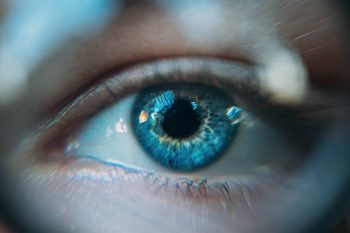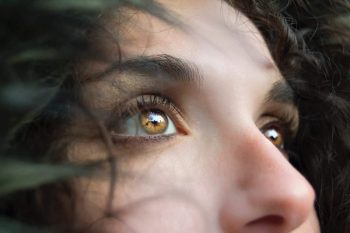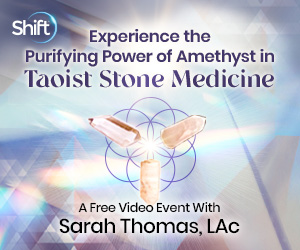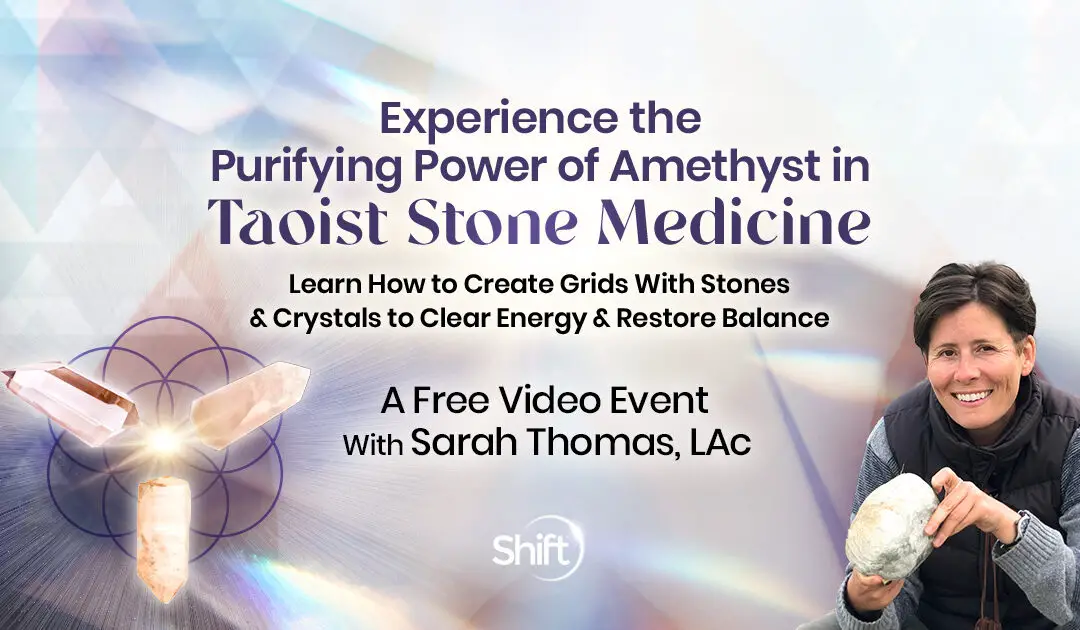By Mateo Sol
Contributing writer for Wake Up World
“The unexamined life is not worth living.” – Socrates
To many of us, self-awareness is like a mythical unicorn: Sometimes we catch fleeting glimpses of it. But as soon as we’ve spotted it, it vanishes into thin air.
What is this mysterious quality that we think we possess, but actually rarely do? Most importantly, WHY is self-awareness so important?
Being self-aware is an essential part of the spiritual journey. In fact, without this fundamental quality, there can be no hope of spiritual or psychological growth. Self-awareness is the very first stepping stone towards expanded consciousness and experiences, such as deeper self-understanding, more self-compassion and increased love for others.
I’ll explore the many benefits later… But in the meantime, let’s attempt to paint a picture of this magical and oh-so-sly unicorn.
What is Self-Awareness?
Self-awareness is the ability to introspect and be aware of your own thoughts, feelings, impulses, physical sensations, and behaviors. At a basic level, self-awareness is the ability to pay attention to who you are and what makes you tick. At more complex levels, self-awareness involves developing an understanding of your deeper beliefs, inner wounds, mental and emotional defense mechanisms, and repressed unconscious material – also known as self-understanding.
So what’s the difference between self-understanding and self-awareness?
Quite simply, self-awareness is recognizing your inner landscape. On the other hand, self-understanding is using that self-awareness to figure out something about yourself. Do you see the subtle difference?
What about self-awareness and consciousness … are they the same thing?
No. They aren’t. The difference between humans and most animals is that humans possess both self-awareness and consciousness, while most animals only possess instinctual consciousness. According to one Scientific American article, “Consciousness is awareness of one’s body and one’s environment; self-awareness is recognition of that consciousness.” In other words, consciousness is an external focus, while self-awareness is an internal focus.
Self-Awareness Examples
Intellectually understanding self-awareness is all fine and dandy. But let’s go to the next level. What does self-awareness actually look like in action? Here are some self-awareness examples:
Angela keeps falling into toxic relationships with unavailable men. Finally, after her fifth failed relationship she has a revelation, “some unhealed part of me is attracting these men into my life.” She has experienced a moment of self-awareness.
Daniel has a weight issue that has caused diabetes. After coming back from work each day he goes on a massive food binge. Suddenly, while cramming a jammy doughnut into his mouth he realizes, “I always binge eat after coming back from work. Work must really stress me out.” He has had a moment of self-awareness.
Patricia struggles to make genuine connections with others – she also has an addiction to talking about people behind their backs. In the middle of a conversation with her no-nonsense work partner, the conversations come to a halt. “Why are you always gossiping about other people, Patricia?” Suddenly, a lightbulb goes off within Patricia’s head and she realizes why she can’t make genuine friends. She has temporarily become self-aware.
Rahul can’t stand his father in law, but he isn’t aware of it. His wife wants him to go to a fancy dinner with her family, but he adamantly refuses. “You won’t go!? I can’t believe this!” screams Rahul’s wife as she storms out and slams the door. Rahul stands there quietly and suddenly realizes how much he dislikes his wife’s father. He has had a spark of self-awareness.
Jayla constantly gets into arguments with other people. She thinks it’s because others are out to get her, but she doesn’t realize how poor her communication skills are. After interrupting her sister for the twentieth time, her sister explodes. “Why do you keep fucking interrupting me, Jayla? Just let me TALK already. It’s no wonder you’re constantly arguing with everyone – they can’t stand talking to you! Show some damn respect and let other people talk for once.” Jayla bursts into tears, realizing the harsh truth behind her sister’s words. She has experienced self-awareness.
Lebron has been in the dating game for years, but still hasn’t found “the one.” In the middle of a bout of depression, he realizes he has only been chasing after the girls his parents approve of. He has experienced a moment of self-awareness. On the next date he goes on, he decides to listen to his instincts rather than the voices of his parents in his head. After a few more dates he finds his soulmate thanks to listening to his intuition. His life has changed thanks to self-awareness.
A few other examples of being self-aware include:
- Being aware of your genuine feelings and emotions
- Being aware of your beliefs
- Being aware of your prejudices and biases
- Being aware of the way you interact with others
- Being aware of your habits
- Being aware of how you wish to be perceived
- Being aware of your worst fears
- Being aware of inner conflicts
- Being aware of your goals and dreams
- Being aware of being aware (e.g. during meditation and contemplation)
Why is Self-Awareness Important?
Developing self-awareness is so important because without it we can easily become stuck in toxic patterns for years, even an entire lifetime (as many people do). Self-awareness is the very foundation of all emotional, psychological, and spiritual growth. A lack of self-awareness results in living an inauthentic and chaotic life that is driven by untamed impulses, unconscious habits, and unquestioned beliefs. To put it simply, self-awareness is so important because without it we become self-destructive.
How many times have you come across people who make the same mistakes, over and over again?
These people lack self-awareness.
How many times have you seen people thrive on drama and self-destructive behavior?
These people lack self-awareness.
What about those who inflict unspeakable violence upon others?
These people also lack self-awareness.
What about those who live most of their lives in boring, stagnant, and meaningless routines?
These people lack self-awareness.
Do you get the drift?
Give me any human problem and I will be able to trace it back to a lack of self-awareness.
It’s pretty tragic.
BUT, there is hope – and that is to make becoming self-aware a personal mission. When you become a model of self-awareness, others around you will also be positively influenced. Be the change you wish to see in the world (I know it’s cliche, but it’s very true guidance). Becoming self-aware is the number one thing you can do to make big shifts in your life. We’ll explore how to do that soon.
Why Is It So Damn Hard to Be Self-Aware?
The ego (the identity or sense of self that you carry) is a tricky little bugger. In order to maintain an image of itself, it must sustain and defend anything that challenges its existence. Inevitably, this need to “keep up the image” involves a whole lot of sly self-deception, resistance, subversiveness, and even a blatant avoidance of reality. As one person on Quora provocatively observed, “In short, the ego is a bullshit factory, and that process prefers to be undisturbed and unobserved.”
However, we also must be thankful towards our egos. Without having an ego, or a separate sense of self, we would be incapable of distinguishing ourselves from the oncoming truck that’s speeding towards us. Possessing an ego is a survival mechanism that helps us to ascertain what is ours vs. others – we absolutely need it to survive.
But there is a massive downside to having an ego (and you can read more about the ego’s shadow side here). The ego is diametrically opposed to self-awareness because being self-aware challenges, provokes, and sometimes even shatters the mask of the ego. I’ll give you a few examples why:
Example 1 – You’re having a fight with your partner for the fiftieth time that week. In a fit of rage, you smash your fist into the wall. “Why the hell did you do that you psycho!?!” your partner screams. “I’M NOT THE PSYCHO YOU PSYCHO! I INTENDED TO SMASH MY FIST THROUGH THAT WALL! I’M COMPLETELY FINE! WHY ARE YOU ACTING LIKE A PSYCHO!?!” After your partner ends the relationship, you suddenly realize that you had been projecting your issues onto them all along. You discover how much of an angry asshole you are and realize you’re to blame for the relationship breakdown. Ouch. That sting of self-awareness hurts like hell.
Example 2 – After scrolling through your social media stream you start to feel depressed and inadequate. Everyone else seems to have a better and more exciting life than you. You feel like a complete loser for the entire day. Suddenly, you have a lightbulb moment: you feel so horrible because you have low self-esteem. Immediately the thought of having low self-worth makes you feel like even more of a loser, so you suppress and ignore the insight.
I could probably write a few more pages of examples, but do you see what I mean? Self-awareness can often be too much for the ego to handle. (This is why it’s so important to practice self-awareness along with self-care and self-love.)
The next reason why self-awareness is so difficult is literally that it’s programmed into us to do most things on autopilot. According to this Psychology Today article we operate on autopilot around 50% of the time. Can you imagine how difficult life would be if you had to remember to breathe, scratch your head, walk, blink, drive your car, use your phone, speak, and so forth? Most of what we do is on autopilot for a good reason: it’s a much more efficient way to live! We have evolved to become terrifically time and energy efficient creatures. In order to preserve energy and survive, we need to learn how to do things quickly. Unfortunately, that means that a large percentage of our lives can be lived in robot-mode. Therefore, self-awareness is so difficult because our biological programming makes it hard for us to be mindful.
So why, you may wonder, should we even bother to develop self-awareness if our psychology and biology seem to be working against us? The answer is that fortunately, we are so much more than our minds and bodies – we also possess a heart and soul – and it is the emotional and transpersonal elements of our being that drives us towards self-awareness. Not only that but becoming self-aware literally transforms every aspect of our lives for the better. We’ll explore that next.
Benefits of Self-Awareness
Developing self-awareness is one of the best paths you can ever take in this life. Here are some of the many benefits of self-awareness out there:
- You become more authentic and empowered to be yourself
- You develop a stronger connection with your intuition and inner wisdom
- Your relationships become more loving and peaceful
- You are more likely to discover your life purpose
- You’re able to overcome addictions more easily
- You become more self-supportive (rather than self-sabotaging)
- You feel more confident in social situations
- You’re able to change negative habits and mindsets
- You’re able to take care of your health much more effectively
- You live a more fulfilling life (that is based on your values, not others)
- You feel more connected to your Soul
- You feel more connected with existence
This is not an exhaustive list. There are WAY more benefits out there. But I just want to open a little door into the wondrous world of becoming self-aware.
11 Self-Awareness Activities for Spiritual Seekers
Developing self-awareness is the foundation of all important life changes and deep inner work. The more self-aware we are, the more we can understand, accept, and love ourselves. And the more we love ourselves, the more we can love others. Can you see how this is all connected?
Go through the following self-awareness activities list and choose one practice that resonates with you. Try it out for one week and see how you feel. Then, repeat the process!
1. Tune into your body
Your body is one of the most direct ways to connect with your emotions. If you tend to get lost in your head too much, practice scanning your body. Search for areas of tension or discomfort and ask, “What is happening here?” For instance, you might find yourself clenching your fists or jaw and realize that you’re feeling angry. You might have tense shoulders and realize that you’re “carrying the weight of the world” on your shoulders. Or you might even discover that a persistent physical issue you have is connected with a stressful place or person. Once you have become aware of the issue, you can then take steps to reduce your stress, anger or sadness.
2. Identify your specific type of “body armor”
Body armoring was a concept developed by psychoanalyst Wilhelm Reich and came to describe the process of storing traumatic experiences within the muscles of our bodies. ‘The issue is within the tissue’ in other words. If you have a certain part of your body that is frequently sore, stiff or full of pain, it is likely that there’s some kind of trapped or reinforced emotion stuck there. By paying attention to your body, you will be able to identify your type of body armoring. Read more about how to explore the emotions hidden in your muscle tension.
3. Ask someone to point out your blind spots
Yes, I know this initially sounds pretty damn scary. But it’s actually one of the most powerful self-awareness activities out there. A word of caution, though: unless you want to be roasted, it’s better to find a trusted friend, counselor, spiritual guide or coworker for this activity. You’ll want to ensure this person is close to you and feels comfortable with being honest. Then, ask them to reveal any weaknesses or unhelpful habits that you might possess. Remember that for this task you have to mentally prepare yourself. You don’t want to ask someone to do a favor for you and then tear out their throat in anger! Facing our flaws can be confronting and distressing to the ego. So ensure that you’re in a calm and centered space beforehand. Studies have shown that our coworkers can evaluate our strengths and weaknesses twice as more accurately than we can – they see things that we can’t or won’t see. The more people you seek out, the better. Make use of the insight others have in your life and use it to your advantage.
4. Stand in front of the mirror
A simple but powerful way of becoming more self-aware is to listen to your self-talk. The best way that I’ve found of doing this is to stand right in front of the mirror staring at yourself. What insecurities or negative self-judgments arise? What are the dominant feelings you experience? The mirror technique will give you a direct insight into how you perceive yourself, and therefore increase your self-awareness.
5. Think about your greatest strengths
Reflect on your accomplishments and the things you’re proud of. What do you like about yourself? Get a journal and record all of your discoveries. The more aware you are of your strengths, the more you’ll be able to make self-aware decisions that are aligned with your authentic self.
6. Explore your biggest weaknesses
It might seem unnecessary or even detrimental to explore your weaknesses, but as Ralph Waldo Emerson once wrote, “our strength grows out of our weaknesses.” Once you are able to face and own these darker parts of yourself, the more freedom and power you will paradoxically experience. My favorite way to explore weaknesses is by examining the shadow (read more about shadow work). To begin this process, make a habit of noticing whenever you experience strong emotions such as shame, guilt, anger, resentment, and fear. Ask, “what triggered these feelings?” You might even like to keep a shadow journal to record your discoveries so that you can track your journey of self-awareness.
7. What is your #1 distraction?
Our distractions tell us a great deal about our fears, impulses, and hidden desires. What unnecessary task takes up a lot of your time? Perhaps it might be watching TV, online shopping, snacking, masturbating, scrolling through Instagram, playing video games, gossiping with friends or even getting lost in daydreams. Distraction isn’t always a bad thing, but when we obsessively find ways of escaping reality, there’s a problem. Draw awareness to your distractions and you will be on the path to greater self-insight.
8. Practice meditation and mindfulness
Mindfulness means paying attention to the present moment, whereas meditation is learning how to become aware of your thoughts. Together, they make a dynamic duo. Mindfulness helps to ground you in reality which increases self-awareness. Meditation, on the other hand, is a way in which you can become intimately acquainted with your mind and its processes. Both practices can be incorporated relatively effortlessly into your day. If you have five or ten minutes to spare, take time to drop into your body and senses. Here are eight mindfulness practices you may like to explore. I also recommend apps such as Calm to support your meditation practice.
9. Keep a daily ‘Sunshine and Sh*t’ journal
Record all the things you loved and hated within your day (aka. the sunshine and shit!). Write down how you felt, what your plans are, and anything else you’d like to express. Journalling is a simple and powerful form of self-expression that is a wonderful way to enhance your self-awareness.
10. What do you dislike the most in others?
“I hate people who are judgmental”, I once remember saying. My wise friend at the time turned around and retorted, “But aren’t you judging those people for being judgmental?” Oops. Yeah, it happens a lot. Most of us aren’t even aware that we are projecting a lot of our shit onto other people. Why? Because when we disown the parts we dislike about ourselves, it’s easier to live with ourselves. But the easy path is the lazy path. Self-growth isn’t always flowers and rainbows, and nor does it need to be. The reality is that if we want to become truly self-aware, we need to own our projections at some point or another. By reclaiming and embracing the denied, suppressed, and shunned aspects of ourselves, we feel more at peace with ourselves and those around us. This, of course, requires radical self-honesty. Do you have the guts to own your projections? Check out my article on psychological projection.
11. Read books, take tests, attend workshops
Self-awareness is a life-long process – there is no real ‘end’ point because we are constantly morphing and evolving. It would be pretty boring if self-awareness could be condensed into a five-day retreat! With this in mind, it’s important to have fun on the journey. There are so many intriguing ways to ‘peel back the layers’ of your psyche. This entire website, for example, has hundreds of articles which can help increase your self-awareness. I’ve also designed a hell of a lot of free psychological and spiritual tests, which you can find in LonerWolf’s free tests section. So, in essence, have an insatiable thirst for self-knowledge. Go out there and watch lectures, attend workshops, and gain new skills. See life as a school and use every opportunity you can to increase your self-awareness and self-acceptance – it’s such a beautiful way to live life!
“Self-awareness is a key to self-mastery.” – Gretchen Rubin
Final Thoughts
What is your relationship with self-awareness like? What was the most amazing and mind-blowing moment of self-awareness you have ever had?
I’d love to hear in the comments!
Also by Mateo Sol:
- Spiritual Sex: 3 Types of Divine Union
- 6 Powerful Solfeggio Frequencies that Raise Your Vibration
- Hypnagogia: The Trippy Mental State That is the Key to Deep Self-Discovery
- 39 Self-Care Ideas for Those Who Struggle with Self-Love
- Signs and Omens: Listening to the Messages of Spirit
- 21 Signs You’re Experiencing “Soul Loss”
- Soul Retrieval Can Heal Addiction, Trauma and Mental Illness – Here’s How
- Mind, Self, Spirit and Soul: What’s the Difference?
About the author:
Mateo Sol is a prominent psychospiritual teacher whose work has influenced the lives of thousands of people worldwide. Born into a family with a history of drug addiction, schizophrenia, and mental illness, Mateo Sol was taught about the plight of the human condition from a young age. However, at the age of 18, Sol experienced a spiritual awakening which aroused in him the desire to help others. After reconnecting with his ancient Peruvian roots and being initiated into their ancestral wisdom, Sol co-founded the influential spiritual website lonerwolf.com in 2012. As a shaman, soulwork therapist and spiritual guide, Sol’s mission is to help others experience freedom, wholeness, and peace in any stage of life.
This article 11 Self-Awareness Exercises For Spiritual Seekers was originally published on lonerwolf.com.
Amethyst, a revered stone in Taoist practices, is known for its powerful ability to absorb harmful energies and restore balance to the body, mind, and spirit. This crystal acts as an energetic filter, helping clear negative energies in your environment and body and promoting peace, clarity, and emotional stability. Join this free online event to learn how Taoist stone medicine uses amethyst to purify and uplift your life.
During this event, you’ll learn the ancient practice of creating a diamond-shaped amethyst purification grid designed to clear harmful energy and bring fresh, positive vibrations into your space. You’ll also discover how amethyst and other stones can cleanse your surroundings and promote spiritual renewal, providing clarity and peace in your life.
Don’t miss out on this unique opportunity to learn the healing powers of amethyst and Taoist stone medicine. Register for the free event today to learn practical techniques to transform your environment and enhance your well-being. Join us now to unlock the power of amethyst!
If you’ve found value in our articles, we invite you to support the release of our brand-new book, “Gratitude Practices for Kids: A Practical Guide for Adults to Instill a Spirit of Appreciation and Positivity in the Next Generation.“
“Gratitude Practices for Kids” brings together over 25 innovative and accessible practices designed to enhance gratitude in everyday life. This comprehensive guide is backed by 17 scientific studies, ensuring each concept is grounded in research, underscoring our commitment to nurturing growth, emotional intelligence, and positive interactions between adults and children.
We encourage you to opt for the paperback version to celebrate this new release. Dive into its fresh pages away from digital distractions, allowing you to immerse yourself in the transformative practices it offers.
Over recent years, Wake Up World has faced significant online censorship, which has impacted our financial ability to operate. Moving into book publishing represents a strategic step to secure the ongoing funds needed to continue our mission. By purchasing Gratitude for Kids, you help us keep our content free and accessible to everyone, avoiding needing a paywall. With over 8,500 articles published in the last 13 years, we remain dedicated to keeping our valuable content open to all.












